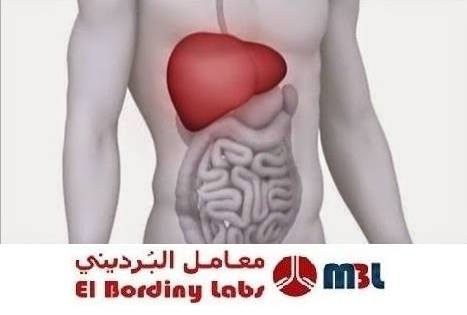How to take care of your liver

Thrombosis (clotting) of blood ..
September 29, 2015
New Branch at Smouha- next to El Ibrahimeya Bridge
February 26, 2023How to take care of your liver
How do you take care of your liver?!
Your liver depends on you to take care of it so that it can take care of you. It represents the engine, storage, refinery and filter of your body.
The problem is that he is a quiet partner, as he does not complain until after he suffers serious harm.
The liver – the largest organ in the human body – plays an important role in regulating the body’s vital processes.
It is the main organ for the manufacture of blood for the fetus.
It is responsible for ridding the body of harmful substances that are eaten, inhaled, or absorbed through the skin.
It acts as an energy generator.
The liver is a factory for clotting factors and immune bodies.
It stores some vitamins, mineral salts, and carbohydrates. It also regulates the storage of fats and the manufacture and excretion of cholesterol.
Bile, which is made in liver cells, helps in the digestion and absorption of certain nutrients.
Helps fight infectious diseases because it purifies the blood from bacteria.
To keep your liver healthy, avoid the following:
1. Alcoholic drinks: Despite the great ability of the liver to regenerate (the liver can grow after removing three-quarters of it again within a few weeks to the same size), exhausting it with drinking alcohol can cause permanent damage to its cells (cirrhosis).
2. Medicines: Many of the medicines that are allowed without a prescription and herbs contain – or may turn into – substances that are harmful to the liver. Therefore, you should consult your doctor before using any medication.
3. Environmental pollutants: which are inhaled or absorbed through the skin.
Food and the liver:
Balanced food is an essential part of treatment in cases of viral hepatitis, as it may help regenerate damaged liver cells.
Proteins: Excessive consumption by patients with liver disease may cause hepatic coma, when the amount of protein in food exceeds the ability of the liver to use, which leads to the accumulation of harmful substances that affect brain function.
Excess calories can increase liver dysfunction or cause fat deposits in it.
Salt: Patients who suffer from dropsy and swollen feet need to eat foods that contain small amounts of salt because it helps to collect fluids in the body. They should also avoid preserved foods, cold meats, and appetizers such as mayonnaise and ketchup. It is preferable to review the amount of salt in different foods.
Vitamins: Excess amounts of some of them may be an additional source of liver fatigue, especially vitamin A and vitamin D.
Liver function tests:
Liver function tests include checking and estimating liver enzymes, a group of blood tests that provide information about the condition of your liver. Most liver diseases cause mild symptoms at first, but it is necessary to detect these diseases early.
The functions of the liver are divided into three main functions as follows:
1- Functions that depend on the manufacturing capacity of the liver, such as:
Total Protein – TP , Albumin – Alb ,
Globulin
2- Functions that depend on the integrity of liver cells and are called liver enzymes:
Alanine aminotransferase (SGPT) (ALT).
SGOT (AST) aspartate aminotransferase
Gammaglutamyl transferase (GGT).
LDH lactate dehydrogenase enzyme
3- Functions dependent on the extractive capacity of the liver :
Alkaline phosphatase (ALP) enzyme
Bilirubin ( T.Bil & D.Bil )
These tests can be used to:
(1) To detect the presence of liver disease.
(2) Differentiate and differentiate between the different types of liver disorders.
(3) measure the extent of liver damage.
(4) Monitoring response to treatment.
When is liver function analysis required?
As a routine examination to ensure the safety of the liver, in viral hepatic infections, in bile duct infections – in chronic cardiac infections – when taking some medications for a long time.

